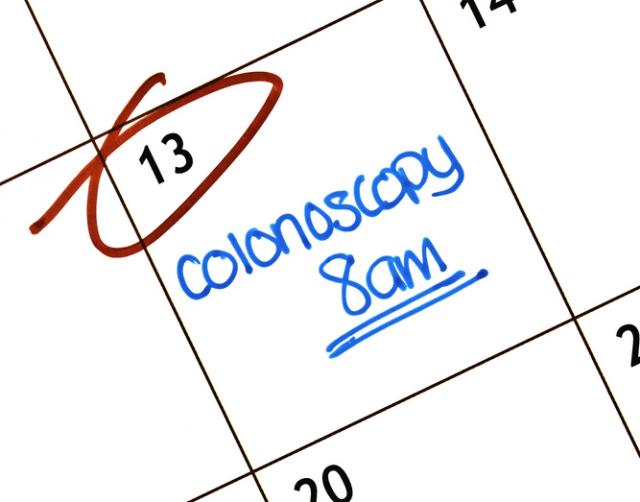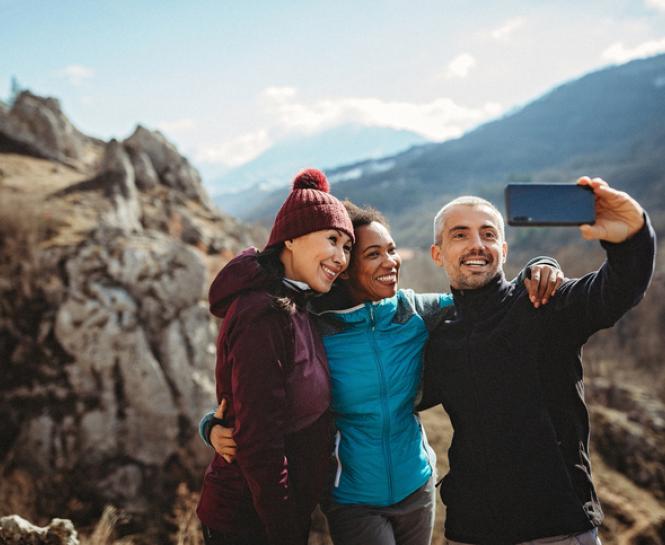Scheduling your colonoscopy is essential to maintain good health, but many people dread this vital health screening because of the test preparation. They have heard it is difficult and uncomfortable through friends and family or online reading.
While the prep would never be labeled “fun,” knowing ahead of time what to expect in the days leading up to and during the process can make the experience more manageable and less stressful. Also, remember that the benefits of a colonoscopy far outweigh the brief inconvenience of getting through the prep.
Colorectal cancer is highly treatable if it is diagnosed at an early stage.
Why do I need a colonoscopy?
Your physician may recommend a colonoscopy for several reasons.
To screen for colorectal cancer. American Cancer Society guidelines recommend that average-risk adults aged 45 years and older undergo a colorectal cancer screening and continue to do so regularly until the age of 75. Typically, doctors recommend screening every 10 years. You may need to schedule at a younger age and more frequently if you are considered high-risk due to factors like family history.
Learn more about the rise of colorectal cancer in young adults.
To look for polyps. If you previously had polyps, your doctor may recommend a colonoscopy to look for and remove any additional polyps. The removal of polyps helps to reduce your risk of colorectal cancer.
To help diagnose intestinal issues. Your doctor may recommend a colonoscopy if you have intestinal problems that need evaluation, such as abdominal pain, rectal bleeding and chronic diarrhea.
How do I prepare for a colonoscopy?
When you schedule your colonoscopy, your doctor gives you specific instructions to follow carefully. Ask any questions beforehand to clarify the information, which will help make your prep easier.
The purpose of the colonoscopy prep is to empty your colon for examination. To empty your colon, your doctor may ask you to:
- Follow a special diet
- Take a laxative
- Adjust your medications
Colonoscopy prep can vary. Always follow your doctor’s instructions and ask questions if you need further direction. In general, your instructions may include the following.
Dietary changes three or four days before the colonoscopy
To help clean your colon, eat lighter meals and low-fiber foods that leave your system quickly three or four days before your procedure. These can include:
- Cooked vegetables without skin
- Eggs
- Fruit without skin or seeds
- Lean meats, fish and chicken
- White bread, pasta and rice
Avoid foods that add bulk to your stool and make it harder for your digestive system to pass, including:
- Beans, broccoli, cabbage, corn or peas
- Fatty meat
- Nuts and seeds
- Popcorn
- Whole grains
A liquid diet one day before the colonoscopy
For most preps, you will stop eating solid foods the day before your colonoscopy. Instead, you will only drink clear liquids like:
- Apple or white grape juices
- Black coffee or tea
- Broth
- Jell-O (gelatin)
- Ice pops
- Sports drinks
- Soda
Avoid red, blue or purple dyes as they can discolor the lining of your intestine. Also, avoid alcohol. Stop drinking clear liquids several hours before the procedure. Confirm with your doctor when you should stop.
Cleaning out the colon the evening before a colonoscopy
Your doctor will prescribe a specific laxative treatment—pills, a laxative drink or a combination of both. You may need a prescription or an over-the-counter purchase.
This part of the prep ensures your colon is empty for the examination. Carefully review these steps with your doctor, including the timing for when to begin.
Some colonoscopy preps are completed in one evening, while others may be a “split-dose” taken between an evening and the following morning. For those who find the drink unpalatable, a “split-dose” can be a good option because it tends to be more tolerable. Check with your doctor first.
Also, for those who find the taste of the laxative unpleasant, drinking the liquid through a straw placed on the back of your tongue or following it with a sip of a flavored clear liquid may help.
You will want to be near a bathroom when the laxative begins to work. You will likely have frequent diarrhea, cramps and bloating. You may even feel nauseous. These are typical side effects of the process.
Your stool will be yellow or clear like water at the end of the process. Even if your stool is clear, you must complete the entire colonoscopy prep process.
What should I expect on the day of my colonoscopy?
Because the colonoscopy involves sedation, arrange transportation to and from the facility where you will have the procedure.
During your procedure, you will receive a sedative through an IV. After you are asleep, your doctor will examine the inside of your colon. They use a long, flexible camera called a colonoscope that sends images to a screen. Your doctor inserts the colonoscope through your rectum to the top of the large intestine called the cecum.
Your doctor will look for precancerous polyps. These polyps are small clumps of cells on the lining of the colon. If your doctor sees polyps or anything atypical, they will take a small amount of tissue from your colon and send it to a lab. Results from these samples identify the area of concern and allow your doctor to proceed with treatment.
A colonoscopy typically takes about 30 minutes to 60 minutes.
For some patients, a colonoscopy and upper endoscopy will be scheduled and performed on the same day. Talk to your doctor for specific instructions.
What is the difference between a colonoscopy and an upper endoscopy?
An endoscopy is a nonsurgical procedure used to help identify and treat issues in the digestive tract. The most common type of endoscopy is an upper endoscopy performed by a gastroenterologist to examine your upper digestive system.
An endoscope—a flexible tube with a tiny camera that sends images to a video screen—is inserted through the mouth. The images help to check for polyps, ulcers and other abnormalities in your digestive tract.
Learn more about how to prepare for an upper endoscopy.
What happens after my colonoscopy?
After you wake from the sedation, your doctor will talk to you before discharge and discuss the next steps. Since you will feel drowsy from the sedation, you should follow up again with your doctor to review any questions you may have.
You will not be able to drive or return to work after the procedure, so use the day to rest. You will also likely be hungry, but do not eat a heavy meal, including a meal with greasy food. Ease back into eating solid foods and stay hydrated.
Most importantly, congratulate yourself for taking care of your health. Keeping up with your annual exam and recommended health screenings is essential to preventive care to catch health issues when they are most treatable.
Find Care at Catholic Health
Find a Catholic Health doctor near you. Or call 866-MY-LI-DOC (866-695-4362). Explore colorectal cancer services.






